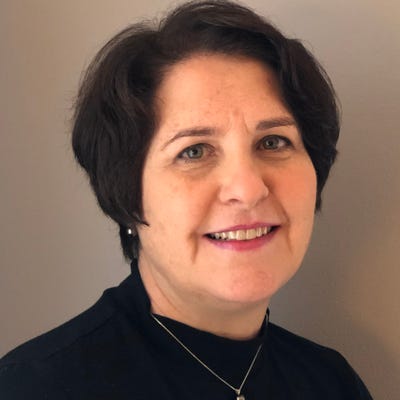What Makes a Great Facilities Leader?What Makes a Great Facilities Leader?
As facilities management takes on a more crucial role in workplace strategy, related training is an asset, but not a key attribute, one exec says.
May 6, 2021

As I noted earlier this week in my post, "Facilities Management: On the Brink of 'Something Great,'" facilities management (FM) has gained strategic importance over the last several years, with the expectation that leaders in the discipline will provide stewardship and guidance as part of cross-functional teams defining the workplace of the future for their organizations.
Will the role of FM still involve the essentials of maintenance and management of building systems and spaces? Of course. But facilities managers who want to take on a leadership role and stand toe to toe with peers in HR, IT, and other functions responsible for creating the next-generation connected, collaborative workplace require more than nuts-and-bolts expertise. Speaking at the recent Facility Fusion virtual event hosted by the International Facility Management Association (IFMA), one facilities executive put it this way: "I bring a little bit of a business mindset to approach things and a lot of customer mindset on how to do things."
That executive is Michael Gould, who can certainly serve as a role model for those in FM looking to elevate their presence within the enterprise. As Gould described to the IFMA audience, he took a rather circuitous route himself to his current role as VP of construction and FM for TD Bank, N.A. After starting off as a greeter at a bank, Gould then worked his way through various functions, including lending, leasing, corporate restructuring, insolvency, finance, and marketing, both in Canada and the U.S. Along the way, he's earned a bachelor of commerce degree, a CPA, and an MBA.
As you'll note, none of these, whether corporate title or educational pedigree, comes with FM or real estate at the end, Gould quipped. But, he added, they did position him to bring those business and customer mindsets that are so necessary for today's leadership voice in FM, and he did draw on the experience and expertise of "smart FM people" along the way.
Now, as TD Bank seeks to fill FM positions, Gould said he has thought about the key attributes that will make a job candidate successful for the new FM. He ordered them as:
Strategic mindset
Relationship management
Customer focus
Coordination skills
Project management
Financial acumen
Vendor management
After these comes an understanding of basic construction and FM industry training as an asset, Gould said. Looking for FM training "as an asset" is quite deliberate, and strategic. "That results in a number of professions and feeder groups to the FM role — operations, customer service, sales, finance, project management, just to name a few," he added.
This approach has worked really well for TD Bank, which is seeing "great, great people come in from outside FM," Gould said. "In my experience, when you bring people in from a crossover, you've increased the diversity of the team, and that ... makes any team perform better."
It's tough to argue with that logic. And, I'd be hard-pressed to find a cross-functional workplace strategy team that wouldn't benefit from the seven key attributes Gould looks for in his new hires.





